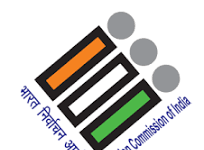 Directorate of Education is confirming claims of a Delhi Commission for Protection of Child Rights (DCPCR) report that says 74 private schools in the national capital territory did not admit a single child from the Economically Weaker Sections and Disadvantaged Groups under the provisions of the Right to Education Act in last two academic years.
Directorate of Education is confirming claims of a Delhi Commission for Protection of Child Rights (DCPCR) report that says 74 private schools in the national capital territory did not admit a single child from the Economically Weaker Sections and Disadvantaged Groups under the provisions of the Right to Education Act in last two academic years.
The DCPCR found that 48 private schools had not admitted a single child from EWS/DG category in the academic year 2016-17 while seven of them had failed to do so in 2017-18. Nineteen such schools failed to comply with RTE norms in both academic years.
The section 12(1)(c) of the Right of Children to Free and Compulsory Education Act, 2009, mandates 25 per cent reservation for children from economically and socially disadvantaged sections in private unaided schools.
The Commission has sent a notice to the Directorate, briefing their findings and listing the defaulting schools. The Commission also intends to conduct an inquiry of its own and has thus asked the Directorate to produce information and documents related to the matter
“We, working together with an NGO called Indus Action, ran data analytics on admissions and seat allotment data of last two to three years. A study commission was set up to check the status of implementation. The process took nine months,” said Anurag Kundu, a member of DCPCR.
All EWS/DG admissions in Delhi NCT are logged online, Kundu explained. Schools log on and put information of allotment and admission so that all data is recorded.
“Not a single child was admitted. Zero. It raises serious questions and calls for a serious enquiry,” Kundu said.
The Directorate, however, sought to downplay the graveness of DCPCR’s findings. They said they would first verify the findings and then assess the next course of action.
“The information is being compiled. It will take a couple of days and only then will I be able to comment on it. The file is being processed, whether we will supply that information to the Commission or not, whether the Commission is authorised to do it or not, we are examining that,” said Sanjay Goel, director of education.
“As far as schools are concerned, we are examining the 74 schools, examining the veracity of the information, and if there is truth to the claims, then we will reply to DCPCR and we will take action accordingly as well,” Goel added.
The Directorate is corroborating the information, Goel said. The department will also examine seat allocations in the last two academic years. Goel claimed that some of the schools mentioned in the DCPCR report might have shut down, which would lead to admission data showing up as nil.
The Commission did not agree with the Directorate’s argument and stressed the need to reach out to parents who had applied for seats allotted to their children under the RTE Act, to cross-check with school’s version.
“Even if I concede that the schools shut down, is it possible that all 74 schools shut down? And even if some did, why were the seats then allotted? The directorate allotted the seats for EWS/DG quota itself,” Kundu underlined.
The Commission has advised the Directorate to closely examine the defaulting schools and scrutinise their recorded responses for the denial of admissions.
They have also sought the phone number of parents who were allotted seats in these 74 schools, the excuses given by the private schools, and the subsequent action taken by the Directorate to help conduct their separate inquiry.
DCPCR has asked the Directorate to submit this information by October 20.
An official in the Private Schools Branch of the Directorate, speaking on the conditions of anonymity, said there were only two repercussions for schools if they denied admissions to children from EWS/DG quota under the RTE Act.
“Either they will be derecognised or they will be taken over by the government. There is no monetary penalty,” the official said. “And we don’t often derecognise schools because we have to keep in mind the students and teachers of the school.”
He informed that the RTE implementation in Delhi has increased from 34 per cent in 2014-15 to 76 per cent in the present day. He also said that admissions under EWS/DG quota had increased from 9,000 in 2011-12 to 33,000 today.
“There are about 2,400 to 2,800 seats under EWS/DG quota that are vacant. There are no applications,” he added.
The official also argued that there were no big or famous private schools among the 74 listed in DCPCR’s report, a view that DCPCR did not take kindly to.






